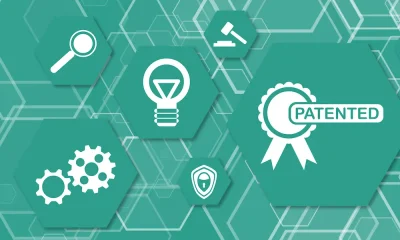Accounting & Finance
The Basics Of Small Business Bankruptcy

Let’s say you are a small business owner trying to cope with mountains of debt. It occurs to you that filing bankruptcy is an option, but how do you know whether it is the best option for you? And what type of bankruptcy filing is most appropriate for your situation?
Business bankruptcy is much more complex than personal bankruptcy. The repercussions of filing can be wildly different depending upon 1) how your business is organized and 2) the type of bankruptcy you file. Read on to learn about the different types of bankruptcy filings and each business type’s potential ramifications.
The Type of Business Structure Matters
How your business is organized will dictate what bankruptcy options are available and help determine which options are best for you.
In short, sole proprietors can file for Chapter 13 bankruptcy, and LLCs and corporations cannot. Chapter 7 and Chapter 11 are available for all types of business structures.
Another thing to keep in mind: if you have a sole proprietorship or general partnership, you are personally liable for your business debts, and if you are a limited partner or your business is a corporation or LLC (limited liability company), you are not.
What Are Your Future Goals?
Do you plan to continue your business operations? Would you entertain the idea of selling your business and using the proceeds to pay off your debts? Are you personally liable for any business debt?
What you plan to do once your debt is discharged will help you decide whether bankruptcy is the best option and, if so, which type of bankruptcy you should file.
Chapter 7 Business Bankruptcy
Sole proprietors can file for a personal Chapter 7 and use exemptions to protect business assets. Partnerships, LLCs, and corporations can use Chapter 7 bankruptcy to liquidate the company, but these business types do not qualify for exemptions. A business, not a sole proprietorship, such as a corporation filing under Chapter 7, cannot continue business operations.
Chapter 7 bankruptcy for all types of businesses wipes out unsecured debts and allows the business assets to be sold by the bankruptcy trustee. However, suppose you are personally liable for any of your business debts. In that case, you as an individual are not protected by your business Chapter 7 filing, and you will be liable for those debts after your business receives a discharge. You must file for personal bankruptcy to erase those debts and protect any personal assets with the available exemptions.
Chapter 13 Business Bankruptcy
Chapter 13 business bankruptcy is not available. However, because sole proprietors are considered one and the same business, a sole proprietor may file under Chapter 13. You can use Chapter 13 bankruptcy protection if you are a sole proprietor. With it, you can retain your non-exempt assets, renegotiate your secured loans, wipe out both business and personal non-priority debts, and pay off such priority obligations as business and personal taxes.
Chapter 13 is a debt restructuring program. You must develop and execute a repayment plan lasting 3 to 5 years and then complete that plan to receive a discharge of your debt.
Chapter 11 Business Bankruptcy
Sole Proprietorship Chapter 11
Chapter 11 is available to individual and business debtors but rarely filed by individuals because Chapter 13 is generally a much more attractive option.
LLP, LLC, Corporation Chapter 11
Chapter 11 is the only solution for companies organized as anything other than a sole proprietorship that wishes to continue business operations rather than liquidate. This type of bankruptcy filed by major corporations and small businesses must follow most of the same rules and procedures. However, if you owe less than $2.5 million, you can file as a “small business debtor,” which fast-tracks the bankruptcy and releases you from some of the more onerous provisions.
Still, Chapter 11 bankruptcy is extraordinarily complicated. To file initially, you must produce your company’s most recent balance sheet, statement of operations, cash flow statement, and federal tax return. You must also:
- Develop and have approved by the court a reorganization plan that shows how your business will recover;
- make monthly payments to creditors, the amount of which is determined by a complex formula, and;
- be subject to strict oversight by a trustee during repayment.
Consult With An Attorney to Explore Your Options
After reading this, if you think filing under Chapter 11 is enormously complex, you are correct. While seeking qualified legal advice regarding any form of small business bankruptcy is advisable, Chapter 11 is truly in a league of its own, requiring an attorney’s experience and expertise.
Determining whether to file for small business bankruptcy and which type of bankruptcy to file is a complicated decision that should not be undertaken lightly. Consult an experienced business bankruptcy attorney who can help you sort through your options, file all needed documents, and ensure you do not experience unintended consequences.
About The Author: David M. Offen, Esq.
A native of the Philadelphia area, Mr. Offen attended Temple University College and Law School. Mr. Offen is licensed to practice in Pennsylvania and New Jersey. He is a member of the Eastern District of Pennsylvania Bankruptcy Conference and the National Association of Consumer Bankruptcy Attorneys. He maintains an active blog on all aspects of bankruptcy filing and current events.
Are you keen to know how to build up credit in your business? See this article.









